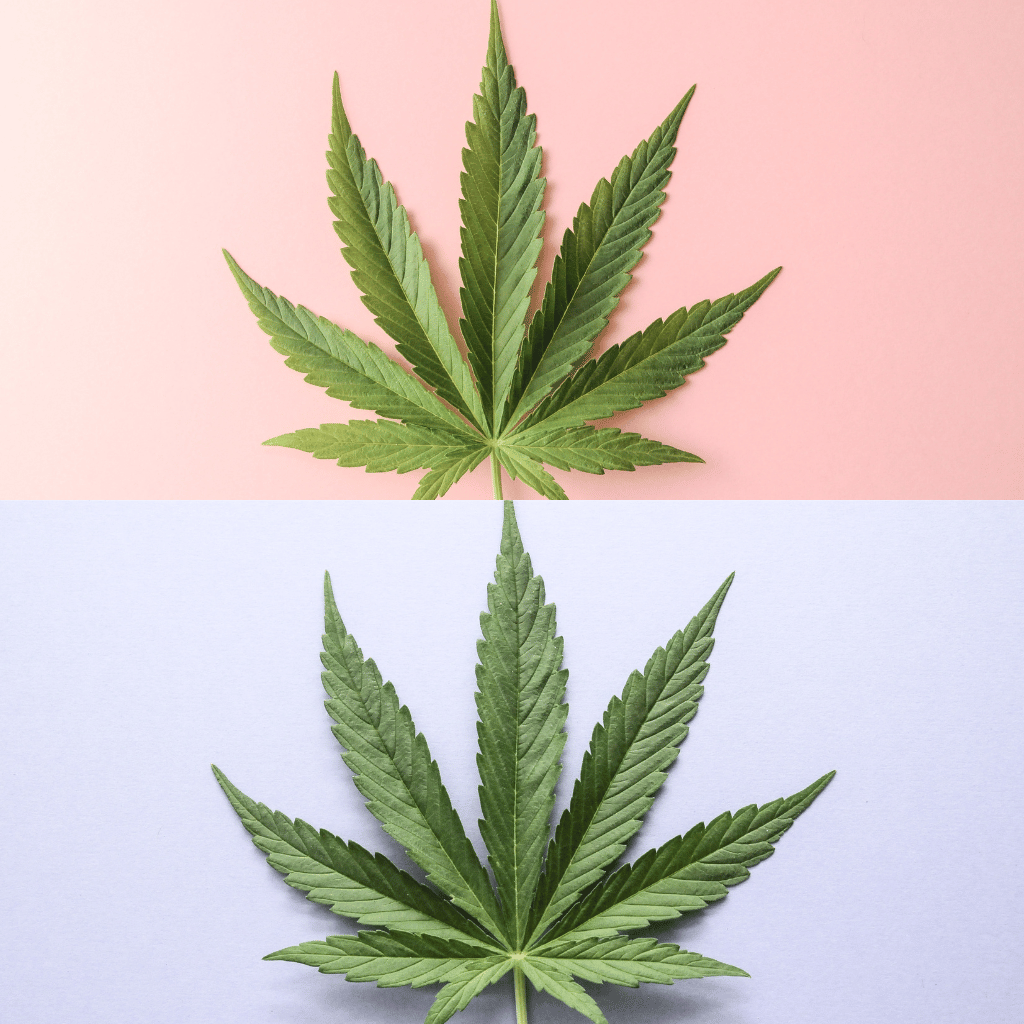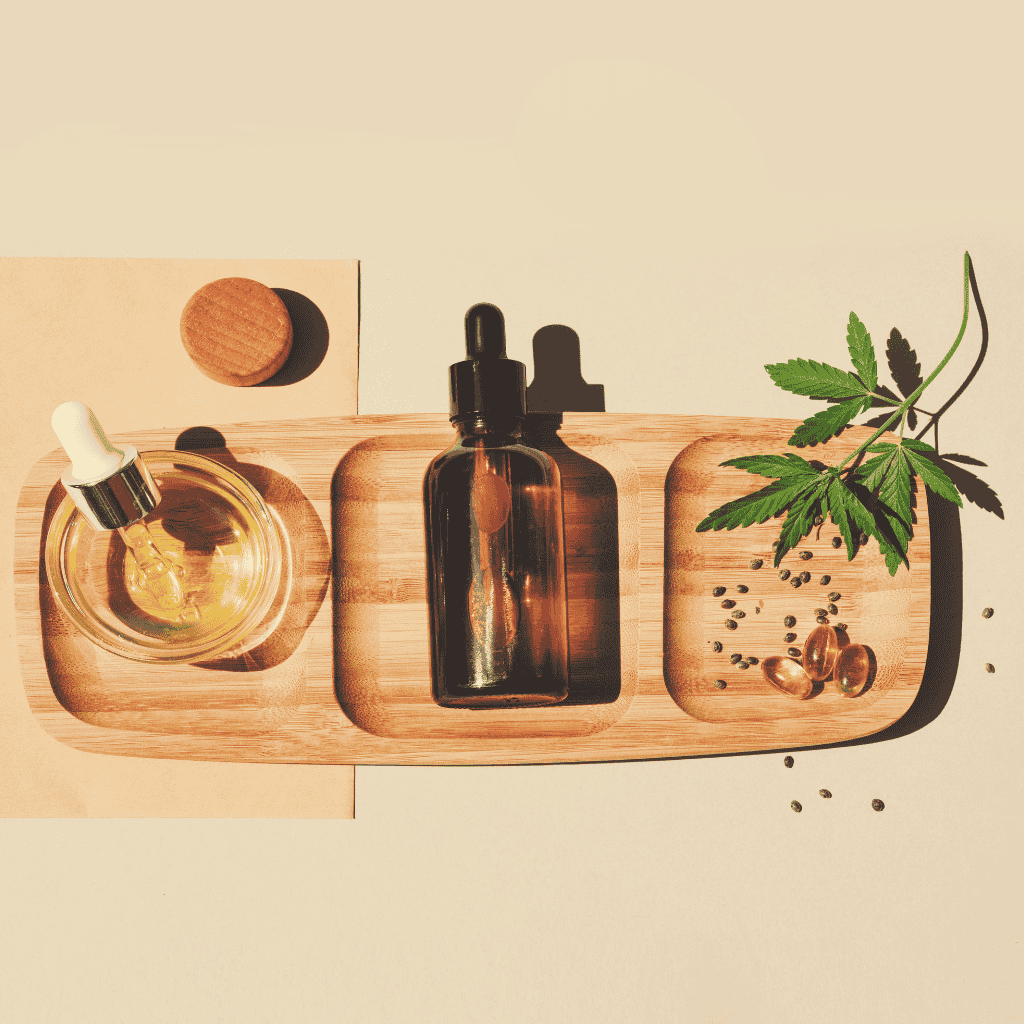Cannabis has gained increasing attention in recent years, primarily due to its two most well-known compounds: THC (tetrahydrocannabinol) and CBD (cannabidiol). These cannabinoids differ not only in their effects but also in their legal status and application possibilities. While THC produces psychoactive effects and induces the typical “high,” CBD is valued for its calming and anti-inflammatory properties. In this article, we’ll delve deeper into the differences between THC and CBD, their effects on the body, legal frameworks, and the various products containing them.
What is THC?
THC (tetrahydrocannabinol) is the most well-known cannabinoid in the cannabis plant and is responsible for the psychoactive effects commonly associated with cannabis consumption. When consumed, THC binds to CB1 receptors in the brain, resulting in an altered state of consciousness – the so-called “high.” This effect has led to THC being classified as an intoxicant and made illegal in many countries.
Beyond producing a high, THC is also used for medical purposes. It has been shown to help relieve pain, stimulate appetite, and treat nausea and vomiting, particularly for cancer patients undergoing chemotherapy.
What is CBD?
CBD (cannabidiol), on the other hand, is non-psychoactive, meaning it does not produce a high, even though it also comes from the cannabis plant. CBD is widely praised for its calming and anti-inflammatory properties and is used in various products, including oils, capsules, and even skincare products.
In many countries where THC is still illegal, CBD is legal as long as the THC content is below a certain threshold. In the European Union, for example, this limit is 0.2%.
Differences in Effects
The most significant difference between THC and CBD lies in their effects on the endocannabinoid system. THC binds to CB1 receptors in the brain, resulting in psychoactive effects that alter consciousness and perception. CBD, in contrast, does not directly bind to these receptors but instead influences them indirectly, producing a calming effect without altering perception.
Studies have shown that CBD can also mitigate the psychoactive effects of THC. This means that products containing both THC and CBD may be less intoxicating than those containing only THC, which is particularly advantageous in medical cannabis use.
Legal Status of THC and CBD
The legal status of THC and CBD varies significantly from country to country. While THC is illegal in many places due to its classification as a narcotic, CBD is legal in most countries as long as the THC content does not exceed the legal limit.
In Germany and most EU countries, CBD products can be legally sold if the THC content is below 0.2%. As of 2024, THC has also become legal in Germany under strict regulations. Meanwhile, in the United States, cannabis legality is determined at the state level, meaning THC is legal in some states and illegal in others. CBD, however, is legal in most states if it is derived from hemp.
Products Containing THC and CBD
Both THC and CBD are found in a wide variety of products on the market. Examples include:
• Flowers: The classic form of cannabis that can be smoked or vaporized. Flowers may be THC-rich or CBD-rich.
• Oils: CBD oils are popular for their ease of use and can be taken sublingually or added to food. THC oils are often used for medical purposes.
• Vapes: E-cigarettes and vaping products containing THC or CBD are another popular consumption method.
• Edibles: THC- or CBD-infused foods like gummies, chocolates, or beverages are growing in popularity for their discreet consumption and precise dosing.
• Creams and Salves: CBD is especially prevalent in skincare products, valued for its anti-inflammatory properties and use in pain relief or skincare.
• Capsules and Tablets: For precise dosing, THC and CBD products are also available in capsule form.
Testing and Detectability
THC consumption can be detected in drug tests. Depending on consumption frequency, THC can remain in the body for up to 30 days or longer. CBD, being non-psychoactive, is generally not included in drug testing. However, some CBD products may contain trace amounts of THC, potentially leading to a positive test result.
Psychoactive Effects and Medical Differences
As mentioned earlier, THC produces psychoactive effects, while CBD does not. This is the most significant distinction between the two cannabinoids. THC is often used recreationally, while CBD is primarily applied in medical contexts.
When choosing between THC and CBD products, the desired effect is key. For relaxation while maintaining a clear mind, CBD is the better choice. For strong pain relief or a recreational high, THC is more suitable.
Conclusion
THC and CBD are two of the most prominent cannabinoids in the cannabis plant, offering vastly different effects. THC is best known for its psychoactive effects and recreational use, while CBD is at the forefront of medical applications. Both cannabinoids have their advantages and uses, which should be selected based on individual needs.



Leave a comment
This site is protected by hCaptcha and the hCaptcha Privacy Policy and Terms of Service apply.